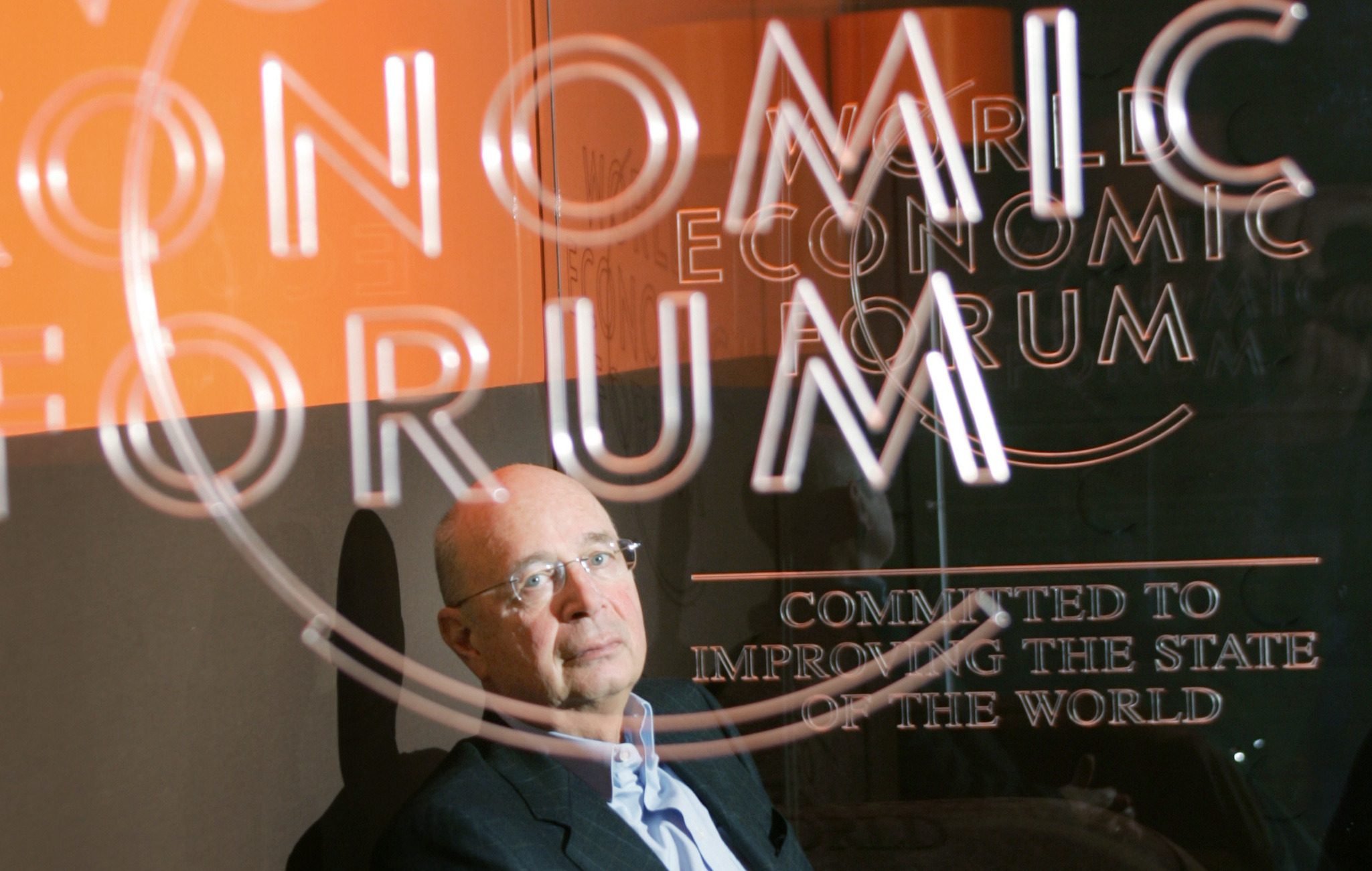Klaus Schwab’s retirement and subsequent fall from grace symbolize the tectonic shifts occurring in the current global order. Schwab’s life’s work was to build a globalist world order governed by international elites and the United Nations. He founded and ran the World Economic Forum (WEF) for decades to promote this vision of global governance for the good of the people of the world.
Schwab and his compatriots had grand ambitions to reshape the global order with a “Great Reset.” WEF’s annual conference in Davos was arguably the most prestigious gathering of global elites in the 2010s. Policy decisions, global priorities, international cooperation, and many initiatives flowed out of this gathering. The Davos gathering pushed Environmental, Social, and Governance (ESG) criteria around the world as part of Schwab’s vision to promote “stakeholder capitalism.”
During the pandemic, the world saw the controlling totalitarian impulse behind Schwab’s globalist agenda for what it was. The public backlash post-COVID was severe. In 2022, the Davos conference started losing steam. In 2023 and 2024, cracks began to show. And by 2025, the Davos conference had largely become a joke. People around the world rejected their top-down global elitism.
Schwab saw his dream of global stakeholder capitalism almost realized. Then he watched it collapse. But with Schwab out of the picture, and the global order he championed in ruins, what’s next? Trump’s success, which is emblematic of many right-wing populist movements around the world, was driven in part by renewed concerns for security and innovation.
The global elites were largely asleep at the wheel, or worse, complicit, in the stagnation of Europe and the aggressive expansion by China. In fact, the ESG movement, and the western environmental movement more broadly, tangled western countries in costly red tape while largely giving China a pass. “Nation-first” policy prioritizes domestic economic development and rapid innovation. Both improve a country’s strategic position internationally while also improving citizens’ standards of living.
Many populist nationalists don’t want any international “order” at all. But can nation-first really work without reference to the rest of the world? Populists sometimes demean the “rules-based international order” of the 1990s as a front for Davos-style elites to manipulate everyone else. This characterization, though largely unfair, has led to calls for “decoupling” from other countries in favor of nation-first agendas.
Nation-first can be a good strategy, but it must understand the relevant rules of the game. In foreign policy, a more restrained and isolationist approach may be best – especially where zero-sum national interests are concerned. But assuming all international relations and interactions must be zero-sum is a grave error.
Most of our interactions with people, whether in our own country or internationally, are in the context of mutually beneficial exchange. Both parties are better off when they can make voluntary agreements and trade with one another. Doing so creates a complex spontaneous order, both within countries and between countries. While a revived interest in national identity and flourishing is a welcome antidote to the homogenizing cosmopolitanism of the rule by global elites, we should consider what the international landscape can look like.
A global order can be both spontaneous and organic. It can serve individuals through voluntary agreements and associations. While this kind of order does not require government planning or direction, it does require governments to exercise restraint and to limit their interventionism. Red tape, high taxes, subsidies, and all kinds of legal mandates can prevent healthy spontaneous order from forming.
An important negative example of lacking restraint is the European Union’s onerous supply chain and environmental regulations. These rules distort, and in some cases destroy, spontaneous order. They replace decentralized decision-making and plans with the coercive plans of global elites.. The result has ranged from economic stagnation to protests to expensive and unreliable energy production.
Nationalists and populists should work aggressively to roll back these legal and regulatory means of control. And they are. But they should not create new barriers to global spontaneous order – whether through onerous tariff schemes, activist industrial policy, or special regulatory treatment for large domestic companies or industries.
A spontaneous global order emerges from the bottom-up, not the top-down. It develops through voluntary exchange and association rather than coercion. It is not subject to the whims, interests, or ideology of a few influential people like Klaus Schwab. Bottom-up voluntary action means that a spontaneous global order will be decentralized, adaptive, creative, and innovative.
Creating this order requires clear rules that apply equally across the board. These rules should be relatively straightforward and stable. We do not need hordes of bureaucrats or regulators to “manage” this new global order. Voluntary association also means freedom. The spontaneous global order that emerges from decentralized coordination will be an open, rather than a closed, system where new entrants are welcomed.
In a spontaneous global order, incumbents have limited ability to protect themselves from new competitors. New entrants who are smaller and nimbler will force continued innovation and improvement from established players. Rather than having legal and regulatory moats that protect entrenched interest groups, in a global spontaneous order everyone can pursue their own endeavors in the international arena. This free, open competition will unleash far more creativity, innovation, and organic solutions than the previous global elite, Klaus Schwab, and the WEF could have imagined.
Anurag Dhole is a seasoned journalist and content writer with a passion for delivering timely, accurate, and engaging stories. With over 8 years of experience in digital media, she covers a wide range of topics—from breaking news and politics to business insights and cultural trends. Jane's writing style blends clarity with depth, aiming to inform and inspire readers in a fast-paced media landscape. When she’s not chasing stories, she’s likely reading investigative features or exploring local cafés for her next writing spot.






